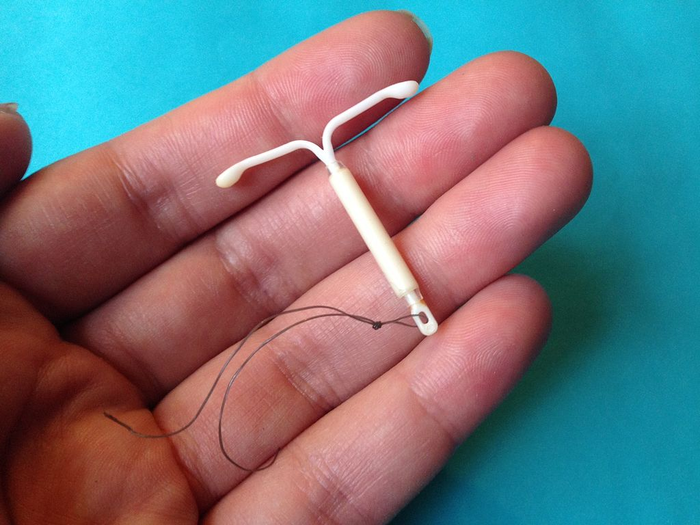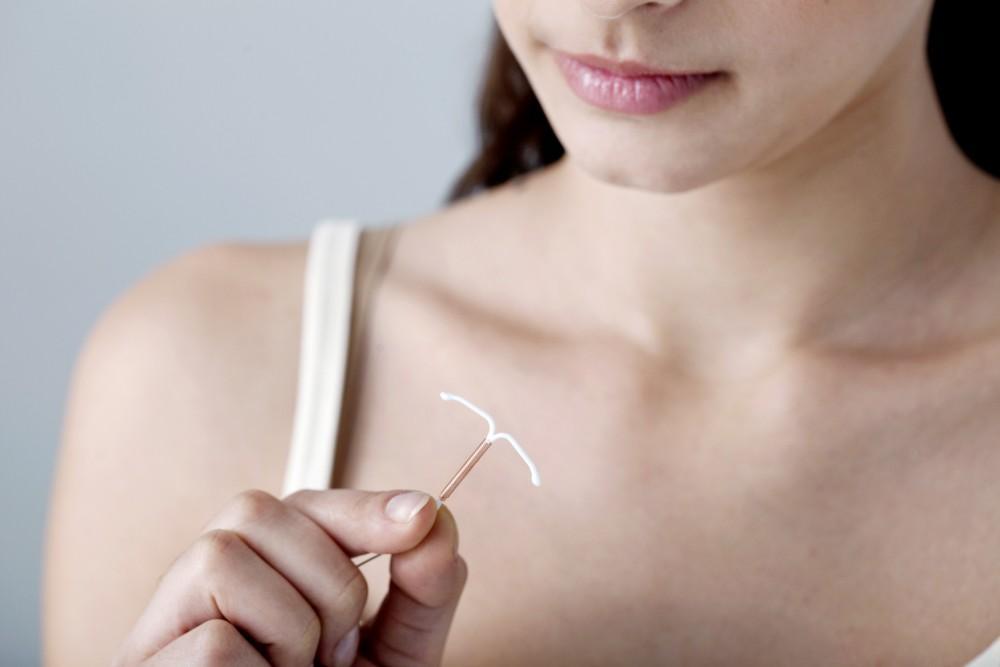Having an intrauterine device (IUD) for birth control can lead to some questions about your period. Many wonder, if the IUD is sitting in the uterus, where does the blood go when you get your period? Today, we will find out what happens to menstrual flow with an IUD in place. We’ll look at how the uterus, cervix, and vagina work together to allow blood to exit the body during your cycle. You’ll get clarity on whether period blood gets trapped or if it drains out normally with an IUD. No more confusion about managing periods with this contraceptive!

Contents
Where Does Period Blood Go When You Have An IUD?
The presence of an IUD doesn’t change where your period blood goes. It follows the same path it would normally during menstruation:
1. Menstrual Flow
During menstruation, the uterine lining thickens in preparation for pregnancy. If conception doesn’t occur, hormonal changes trigger the shedding of this lining, resulting in menstrual bleeding. This blood exits the uterus through the cervix and then passes out of the body through the vagina.
2. IUD Placement
An Intrauterine Device (IUD) is placed inside the uterus by a healthcare professional during a simple procedure. Positioned in the upper part of the uterus, the IUD does not obstruct the cervix, allowing menstrual blood to flow out of the body as usual.

3. Normal Menstrual Process with an IUD
Despite the presence of the IUD, menstruation occurs normally. The menstrual blood flows out of the uterus, through the cervix, and into the vagina, where it is expelled from the body. The IUD does not interfere with this process.
4. IUD and Menstrual Changes
Hormonal IUDs can lead to changes in menstrual bleeding patterns, such as lighter periods, irregular spotting, or the absence of menstruation. Copper IUDs generally do not affect menstrual flow but may cause heavier or more painful periods in some individuals.
5. Monitoring and Maintenance
It’s crucial to monitor any changes in menstrual bleeding after getting an IUD. If you experience severe pain, heavy bleeding, or other concerning symptoms, consult your healthcare provider promptly for evaluation and appropriate management. Regular check-ups are recommended to ensure the IUD remains in place and effective.

An IUD sits within the uterine cavity but doesn’t block the passage of blood. It primarily works by affecting the environment within the uterus, making it less hospitable for sperm and preventing implantation (attachment of a fertilized egg).
How Do IUDs Affect Menstruation?
The effect of Intrauterine Devices (IUDs) on menstruation can vary depending on the type of IUD and the individual’s body. Here’s how different types of IUDs can affect menstruation:
1. Hormonal IUDs:
- Hormonal IUDs, such as Mirena, Skyla, and Liletta, release a small amount of progestin hormone locally into the uterus.
- These hormones can lead to changes in menstrual bleeding patterns for some individuals. Many users experience lighter periods, while some may even stop menstruating altogether (amenorrhea).
- It’s common to experience irregular spotting or breakthrough bleeding, especially during the first few months after insertion.
- Over time, some users may find that their periods become lighter and less frequent.

2. Copper IUDs:
- Copper IUDs, like Paragard, do not contain hormones. Instead, they rely on copper to create an inflammatory response in the uterus, which is toxic to sperm and prevents fertilization.
- Copper IUDs generally do not affect menstrual flow or frequency. However, some users may experience heavier or more painful periods, especially during the first few months after insertion.
- While copper IUDs do not typically cause changes in menstrual patterns like hormonal IUDs, they may exacerbate existing menstrual symptoms for some individuals.
It’s essential to note that every person’s experience with an IUD is unique. While some users may experience significant changes in their menstrual cycle, others may notice minimal differences.
Frequently Asked Questions
Does an IUD affect the flow of period blood?
No, an Intrauterine Device (IUD) does not affect the flow of period blood. The IUD sits inside the uterus, while menstrual blood exits the body through the cervix and vagina as it normally would, regardless of the presence of an IUD.
Can I still have a period with an IUD?
Yes, you can still have a period with an IUD. Hormonal IUDs may lead to lighter periods or even stop menstruation altogether for some individuals, but it varies from person to person. Copper IUDs generally do not affect menstrual flow or frequency.
Where does period blood go with an IUD in place?
Period blood flows out of the uterus and through the cervix as it normally would, despite the presence of an IUD. It is expelled from the body through the vagina during menstruation. The IUD does not interfere with this natural process.
I am a medical student with experience and interest in Women’s health and well-being.